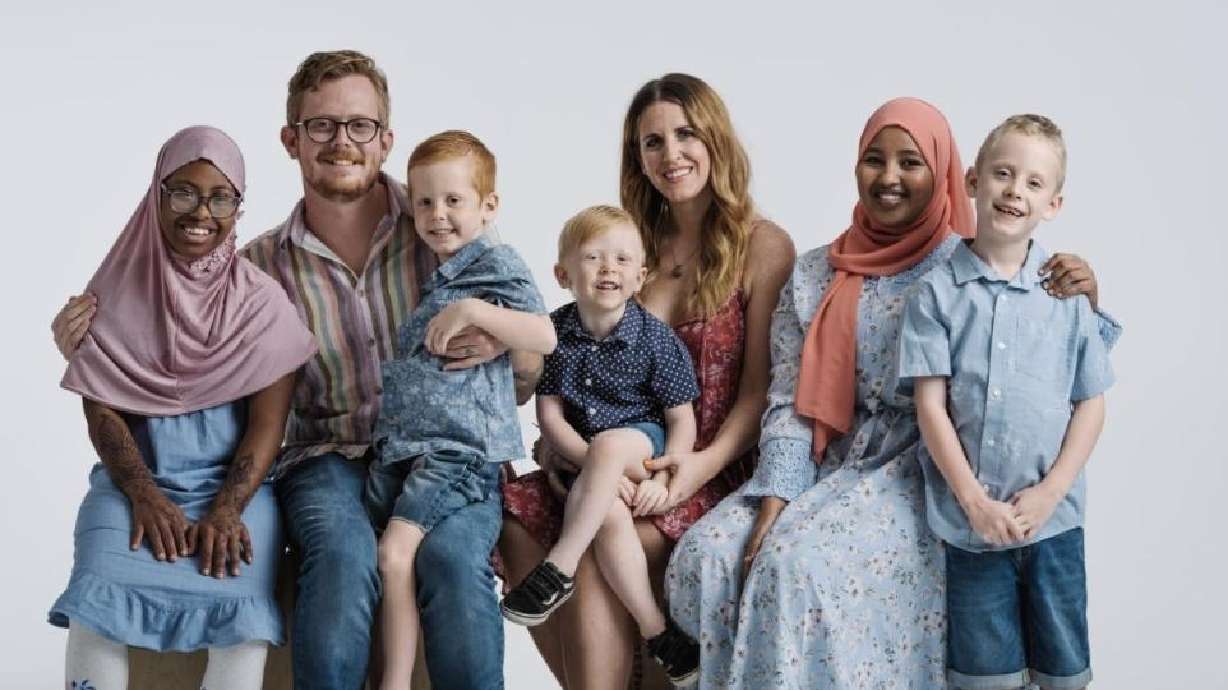Estimated read time: 4-5 minutes
This archived news story is available only for your personal, non-commercial use. Information in the story may be outdated or superseded by additional information. Reading or replaying the story in its archived form does not constitute a republication of the story.
If you're like many Utahns, you wouldn't call the Beehive State home without giving credit to pioneer ancestors who crossed the plains in search of peace and freedom.
These early refugees sought a better life in the Mountain West—and that sentiment is shared by modern-day refugees making their way to Utah in hopes of finding their own peace and freedom.
With that in mind, Utahns now have the incredible opportunity to "pay it forward" and make a profound difference in the lives of unaccompanied refugee minors.
By opening your home and heart as a foster parent, you can provide vulnerable children with the stability and support they desperately need.

The plight of unaccompanied refugee minors
According to the UN Refugee Agency, over half of the world's 43 million refugees are children, many of whom are unaccompanied. These minors have fled their home countries due to war, persecution or natural disasters, often enduring perilous journeys without the guidance or protection of a parent or guardian.
Upon arrival in the United States, they face the daunting task of navigating a new culture and rebuilding their lives in an unfamiliar environment.
The role of refugee foster care
Catholic Community Services (CCS) of Utah operates a Refugee Foster Care program dedicated to resettling unaccompanied refugee minors into licensed and loving foster homes.
This program offers comprehensive services until the youth reach the age of 21. Services include financial support, medical care, mental health treatment, education, job training and legal assistance.
Foster parents play a pivotal role in this process by providing a nurturing environment where these children can heal from past traumas and develop the skills necessary for long-term self-sufficiency.
Family consultants, case managers and transition-to-adult-living coaches collaborate with foster families to support the youth in achieving their personal goals and integrating into the community.

Becoming a refugee foster parent
Becoming a refugee foster parent begins with attending an information meeting hosted by CCS. These sessions, held monthly via Zoom, offer insights into the experiences of unaccompanied refugee minors and detail the various ways individuals can get involved.
Prospective foster parents will go through a thorough application process, including background checks and training to ensure they are well-prepared to meet the unique needs of refugee youth.
CCS provides ongoing support to foster families through regular home visits, check-in calls and access to community resources.
The impact on foster families and youth
The experience of fostering refugee minors is transformative for both the children and the families involved.
Laura and Tim Giles, foster parents to two boys from Eritrea, shared their motivation in a recent KSL article: "They have families who love them and they had to leave their families, and so we just wanted to become an American family to them."
Through the support of dedicated foster families, many refugee youth will achieve impressive milestones as they assimilate into American society and education.

Addressing common myths
Several misconceptions may deter potential foster parents from stepping forward. CCS clarifies that foster parents can be single, married, divorced or widowed, and there is no age limit.
Owning a home is not a requirement; renters are welcome to apply. Additionally, having pets does not disqualify a household, provided vaccinations are current.
How you can get involved
Not everyone can become a foster parent to refugee youth. If the time is not right for you, there are several ways to show your support:
- Volunteer your time: CCS offers opportunities to mentor, tutor or assist with ESL programs, directly impacting the lives of refugee children.
- Donate resources: contributions of money, household items or other essentials can significantly aid in the resettlement process.
- Advocate and educate: sharing information about the refugee crisis and the needs of unaccompanied minors can inspire others to take action.
By helping where you can, you can create a ripple effect of transformation, offering hope and a brighter future to those who have endured unimaginable hardships.
Opening your home to a refugee child is more than an act of service; it's a commitment to fostering hope, resilience and a sense of belonging. As Utah continues its tradition of welcoming those in need, your compassion can make a lasting difference in someone's life.









